Securing ExpressJS Applications: Best Practices for Protection
In an era of interconnectedness and digital innovation, ensuring the security of web applications is paramount. ExpressJS, a popular Node.js framework, empowers developers to build dynamic and robust applications, but security should be a top priority throughout the development process. In this blog, we'll delve into the world of securing ExpressJS applications, exploring best practices, techniques, and strategies to safeguard your applications against potential threats and vulnerabilities. By adhering to these security measures, you can create applications that inspire user trust, protect sensitive data, and maintain a solid defense against malicious attacks. Additionally, we'll introduce you to our Hire ExpressJS Developer Services, which can help you implement a comprehensive security strategy for your ExpressJS applications.
![[object Object]](https://clipl-web1.sgp1.cdn.digitaloceanspaces.com/images/clu85mmil005b4irz5d6g2485.png )
The importance of security in web applications cannot be overstated. Failing to implement proper security measures can lead to data breaches, unauthorized access, and compromised user experiences. By prioritizing security, you can:
- Protect sensitive user data and personal information.
- Safeguard your application's reputation and user trust.
- Mitigate potential legal and financial risks.
![[object Object]](https://clipl-web1.sgp1.cdn.digitaloceanspaces.com/images/clu85gka7004r4irzd91c371v.png )
- Input Validation and Sanitization: Validate and sanitize user input to prevent SQL injection, cross-site scripting (XSS), and other injection attacks. Utilize libraries like `express-validator` for robust input validation.
- Authentication and Authorization: Implement strong authentication mechanisms to verify user identities. Use authorization techniques to control access to resources based on user roles and permissions.
- Password Security: Hash and salt user passwords using secure algorithms. Encourage users to choose strong passwords and enable multi-factor authentication (MFA) for added protection.
- Error Handling: Implement proper error handling to avoid exposing sensitive information to potential attackers. Provide informative but non-specific error messages to users.
- HTTPS and SSL/TLS Encryption: Use HTTPS with SSL/TLS encryption to secure data transmission between clients and the server. Obtain and install SSL certificates to ensure a secure connection.
- Third-Party Libraries and Dependencies: Regularly update and monitor third-party libraries and dependencies to prevent vulnerabilities. Consider using tools like `npm audit` to identify and address security issues.
- Content Security Policy (CSP): Implement a robust CSP to control which resources are loaded and executed in your application, reducing the risk of cross-site scripting attacks.
- Database Security: Implement proper access controls, encrypt sensitive data, and use parameterized queries to prevent SQL injection attacks.
![[object Object]](https://clipl-web1.sgp1.cdn.digitaloceanspaces.com/images/clu85lyhe00574irz6egh5cg7.png )
While securing ExpressJS applications is crucial, it often requires expertise to implement comprehensive security measures. Our Hire ExpressJS Developer Services offer valuable support:
- Collaborate with skilled ExpressJS developers experienced in implementing robust security practices.
- Expedite your project's development by leveraging our knowledge and best practices.
- Ensure seamless integration of security components, enhancing your application's protection against threats.
- Access ongoing support and maintenance to keep your security measures up-to-date and effective.
Conclusion:
Securing ExpressJS applications is a vital responsibility that demands vigilance and dedication. By following best practices and implementing effective security measures, you can build applications that stand strong against potential threats and vulnerabilities. As you embark on this journey of securing your ExpressJS applications, consider CloudActive Labs as your partner. Our Hire ExpressJS Developer Services provide the expertise needed to elevate your security strategies, ensuring your applications are built with precision, resilience, and protection in mind. Reach out to CloudActive Labs today and unlock the full potential of secure ExpressJS applications for your business.























